Who is a projectionist and what does he do?
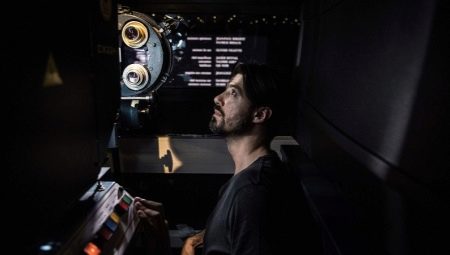
The atmosphere in the cinema hall and the mood of the audience during the screening of the film largely depend on the experience and professionalism of the specialists responsible for the operation of sound and audiovisual equipment - projectionists. Often, representatives of this difficult profession have to single-handedly serve several cinemas at the same time. Let's take a closer look at who the projectionist is, what he does, what knowledge and skills he must possess, how much the representatives of this profession earn.
Description of the profession
Projectionist - a technical specialist who controls the serviceability and uninterrupted operation of audiovisual and sound equipment during the demonstration of the picture in the cinema hall. A representative of this profession is responsible not only for the state of the cinema equipment, but also for the quality of the film screening. Providing high-quality film screening is the main functional responsibility of the projectionist. In simple terms, this specialist is responsible for the brightness, contrast and color rendition of the image, as well as for the loudness and clarity of the sound in the room.
In fact, all the work of the projectionist is aimed at ensuring that every spectator sitting in the cinema hall can enjoy watching the picture, enjoy the fullness of its colors and the richness of sound.
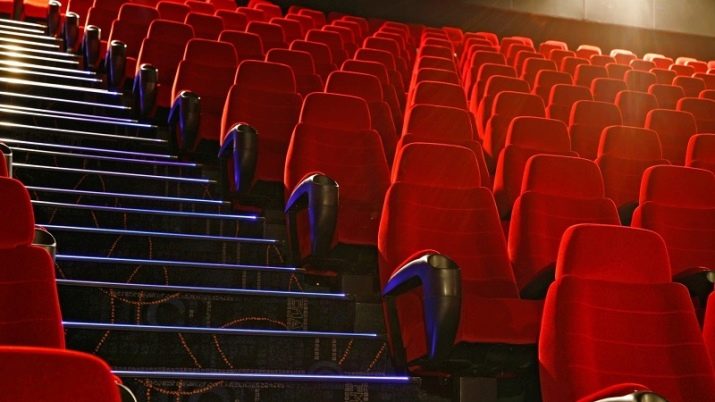
In an effort to ensure the highest quality screening of motion pictures, technical the specialist is obliged simultaneously monitor the state of the equipment entrusted to him. For example, a sudden increase in sound volume can lead to a sharp increase in sound pressure in the cinema.This will not only cause extremely uncomfortable feelings for the audience, but also create critical overloads in the operation of acoustic equipment that can disable it. The work of a projectionist is inextricably linked with the implementation of a large number of monotonous functions.
At the same time, it cannot be attributed to boring and routine types of professions. Men who are capable of multitasking, are well versed in modern cinema technology and the principles of its work usually come to the field of this activity. Women rarely choose this profession due to rather strict requirements for professional knowledge and specific working conditions.
It should be noted that movie mechanics are financially responsible persons. This means that if improper performance of labor functions causes a breakdown of the equipment entrusted to the specialist, he will have to compensate the losses of the cinema at the expense of his personal funds. The level of professional knowledge and skills of the projectionist should allow him to carry out not only the installation and adjustment of equipment, but also its repair. Moreover, in the event of force majeure, a representative of the described profession often has to repair the equipment immediately, in an extremely short period of time.
The work of a projectionist requires a person the presence of not only narrow professional knowledge, but also good memory, stress resistance, physical and moral endurance.
In addition, the regular modernization of cinema equipment, the emergence of more and more powerful and high-tech equipment requires a specialist to be ready for continuous improvement of professional knowledge and expansion of horizons.
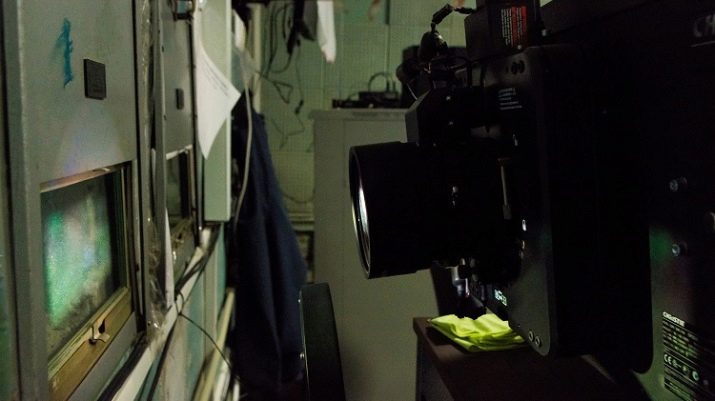
History
Before the digital age, projectionists worked with bulky film projectors. Their service required from specialists not only skill and lightning-fast reaction, but also high physical endurance.
One of the main tasks the projectionists working with this equipment was the filling of film into projectors, of which there were at least two in one cinema hall. In the era of pre-digital cinema, film was stored on large, massive reels. The weight of one such carrier could reach 40 kilograms, which required remarkable physical strength and endurance from projectionists of those times. At the same time, one reel usually contained from 300 to 600 meters of film, which corresponded to only 10–20 minutes of the duration of a motion picture.
The duties of the projectionist included timely replacement of reels with film with the smallest pause between episodes of the film. A sign of the highest skill of a specialist was considered to be invisible to the viewer, a smooth transition from one part of the film to another. In the event of a sudden film break, the technician had to urgently fix the problem, restoring the display of the picture within a few minutes. The profession of a projectionist working with film projectors required from a person not only impressive physical strength, but also excellent health. Representatives of this complex profession, on duty, often had to come into contact with films treated with special chemical compounds that could cause allergic reactions and respiratory diseases.
As in our days, in the pre-digital era, projectionists worked in shifts. However, the duration of one work shift of a specialist was at least 12-14 hours. The greatest workload of projectionists arose during the premiere period, when spectators were drawn to cinemas in an endless stream.
It is worth noting that for all the specific difficulties of their activities, projectionists earned no more than other representatives of blue-collar professions.
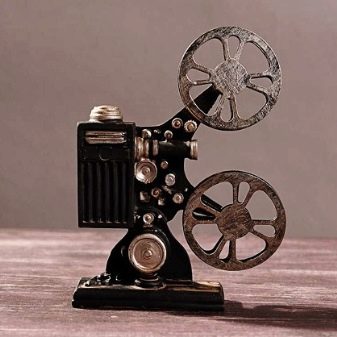
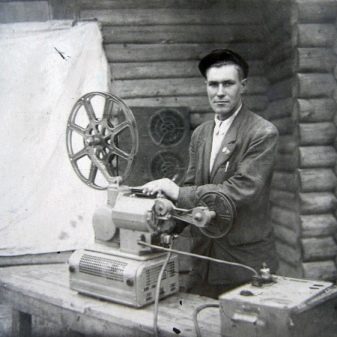
Modern cinemas use digital cinema technology. A digital cinema projector demonstrates a picture not from film media, but from video servers.The device and the principle of operation of such equipment are radically different from film film projectors, therefore, digital cinema equipment is usually classified as a separate and independent class of technology. During the movie screening, the digital projector receives information from the video server, which unpacks the movie from the hard disk. Projectionist's Problem - to provide continuous playback of the film while maintaining high quality images and sound.
With the advent of digital equipment, the workload of projectionists servicing smart equipment has dropped significantly. Modern digital technologies allow one specialist to control and manage screenings in 10-15 cinemas at the same time... Moreover, a modern projectionist performs all the necessary actions from a small room with an installed video server.
Recruiting agencies believe that modern It is desirable for the projectionist to know the principles of operation of not only digital, but also film cinema equipment. This requirement is largely due to the fact that after the sharp appearance of digital technologies in cinema, not all representatives of the industry were quick to abandon high-quality film projectors. For example, in the United States, about 10% of cinemas still use this type of equipment. In Russia, the number of halls where film types of projectors are used is much greater.
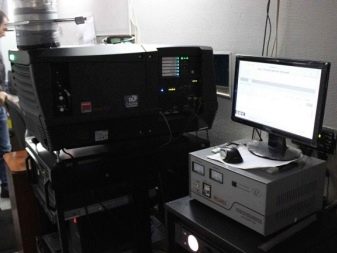
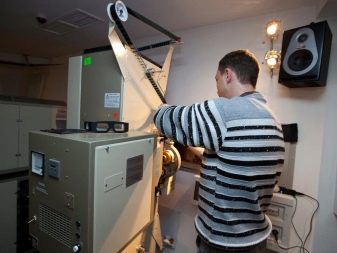
Responsibilities
Job description of projectionist covers a wide range of responsibilities, the main of which is the provision of high-quality film screening. A representative of this profession reports to an engineer or cinema administrator in his work. Demonstration of films is not the only functional responsibility of the projectionist.
In addition to performing this task, he is also required to perform the following:
- carry out regular maintenance of cinema equipment and its preventive examination;
- carry out a comprehensive check, adjustment, adjustment and repair of film projectors, sound equipment, synchronizing equipment, power supply devices;
- to carry out work on the installation and replacement of cinema equipment;
- carry out technical inspection and testing of new types of cinema equipment, as well as equipment that has undergone major repairs.
In addition, the job of a projectionist provides for his strict adherence to internal regulations and safety precautions. This specialist is also responsible for compliance with fire safety rules.
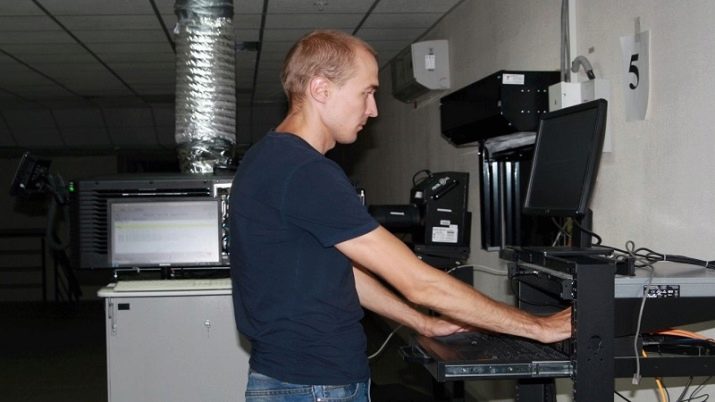
Requirements
The list of requirements for applicants for the described position is developed by the management of the cinema or representatives of the personnel department. Usually from job seekers not only a high level of professional knowledge and skills is required, but also the presence of certain personal qualities.
Personal qualities
One of the important personal qualities that a projectionist must have is stress tolerance... The schedule of film screenings and premieres is very unstable and flexible, which requires a specialist to be prepared for irregular working hours. Busy times are usually on weekends and holidays. Some cinemas are open at night. Observations show that not all applicants for the position of projectionist are satisfied with such a work schedule.
A specific feature of this profession is what it provides work indoors without natural light and fresh air. For this reason, employers often require applicants to be personally prepared to work in cramped, not always comfortable conditions. The projectionist must be deep responsible and executive person. In fact, not only the serviceability of expensive equipment, but also the mood of several hundred people sitting in the hall depends on the quality of his work and professionalism.In this profession, negligence in their duties and disregard for the rules of the internal order are not allowed.
Calmness and discretion are other important personal qualities that a projectionist should have. Sudden malfunctions of equipment, power surges - these and other force majeure circumstances should not cause panic in a specialist. Good memory Is one of the competitive advantages that often makes the applicant the main contender for the position of projectionist. In the first days of work, a specialist will have to face a colossal flow of information that needs to be memorized.
It may relate to the principles and sequence of equipment operation, the location of the main and auxiliary equipment and other specific nuances. Many employers welcome the genuine interest of job seekers in cinematography and related fields of human activity. Knowing the list of upcoming premieres and new films will be an additional advantage for the applicant.
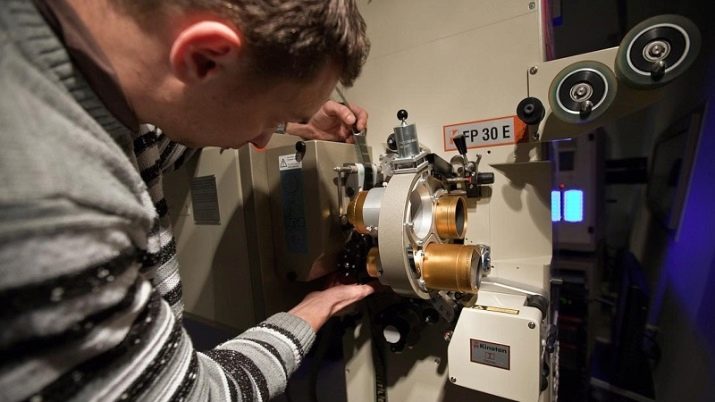
Knowledge and skills
Profstandard presents the following list of basic requirements for professional knowledge and skills of a projectionist:
- knowledge of the device, principles of operation, adjustment and repair of film projection and sound equipment;
- knowledge of the device and principles of operation of a digital cinema projector;
- knowledge of the structure and principles of video servers;
- the ability to work with digital and film media.
This specialist should be able to independently upload digital data to the video server in DCP format, as well as upload and use electronic keys to open these files. He must be able to independently adjust the light intensity, sound and other options of the cinema projector in the absence of an automatic setting mode. Modern projectionist must be a confident PC user who can work with digital storage media.
If necessary, this specialist should be able to independently eliminate errors that arise when working with a video server, a computer, and professional software.
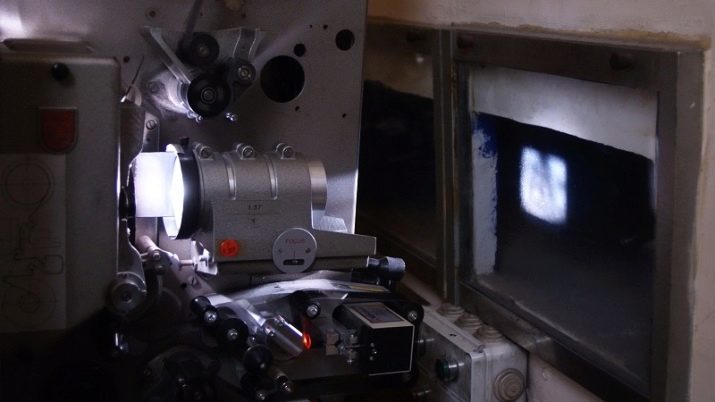
Teaching and perspectives
You can take training and learn all the secrets of working as a projectionist in All-Russian State Institute of Cinematography. S. A. Gerasimova (Moscow). The duration of study at the university is 4 years. In the regions, this profession is taught in secondary specialized educational institutions - technical colleges and schools.
You can master this specialty on specialized courses... To enter the courses, you must have a specialized secondary technical education. In this profession, insignificant career growth is provided. Over time, a trainee projectionist may become a senior projectionist. In total, there are 3 working categories in this field of activity.
The salary
In the capital's cinemas projectionists earn about 30-40 thousand rubles a month. In St. Petersburg salaries of specialists vary from 25 to 35 thousand rubles. In the regions representatives of this profession earn from 17 to 20 thousand rubles a month.









